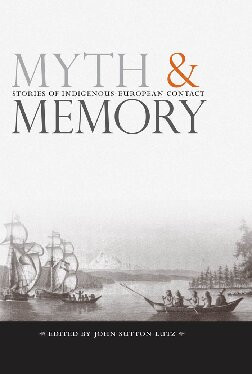

Most ebook files are in PDF format, so you can easily read them using various software such as Foxit Reader or directly on the Google Chrome browser.
Some ebook files are released by publishers in other formats such as .awz, .mobi, .epub, .fb2, etc. You may need to install specific software to read these formats on mobile/PC, such as Calibre.
Please read the tutorial at this link: https://ebookbell.com/faq
We offer FREE conversion to the popular formats you request; however, this may take some time. Therefore, right after payment, please email us, and we will try to provide the service as quickly as possible.
For some exceptional file formats or broken links (if any), please refrain from opening any disputes. Instead, email us first, and we will try to assist within a maximum of 6 hours.
EbookBell Team

4.4
12 reviewsThe stories that indigenous peoples and Europeans tell about their first encounters with one another are enormously valuable historical records, but their relevance extends beyond the past. Settler populations and indigenous peoples the world over are engaged in negotiations over legitimacy, power, and rights. These struggles cannot be dissociated from written and oral accounts of "contact" moments, which not only shape our collective sense of history but also guide our understanding of current events.
For all their importance, contact stories have not been systematically or critically evaluated as a genre. Myth and Memory explores the narratives of indigenous and newcomer populations from New Zealand and across North America, from the Lost Colony of Roanoke on the Atlantic seaboard of the United States to the Pacific Northwest and as far as Sitka, Alaska. It illustrates how indigenous and explorer accounts of the same meetings reflect fundamentally different systems of thought, and focuses on the cultural misunderstandings embedded in these stories. The contributors discuss the contemporary relevance, production, and performance of Aboriginal and European contact narratives, and introduce new tools for interpreting the genre. They argue that we are still in the contact zone, striving to understand the meaning of contact and the relationship between indigenous and settler populations.